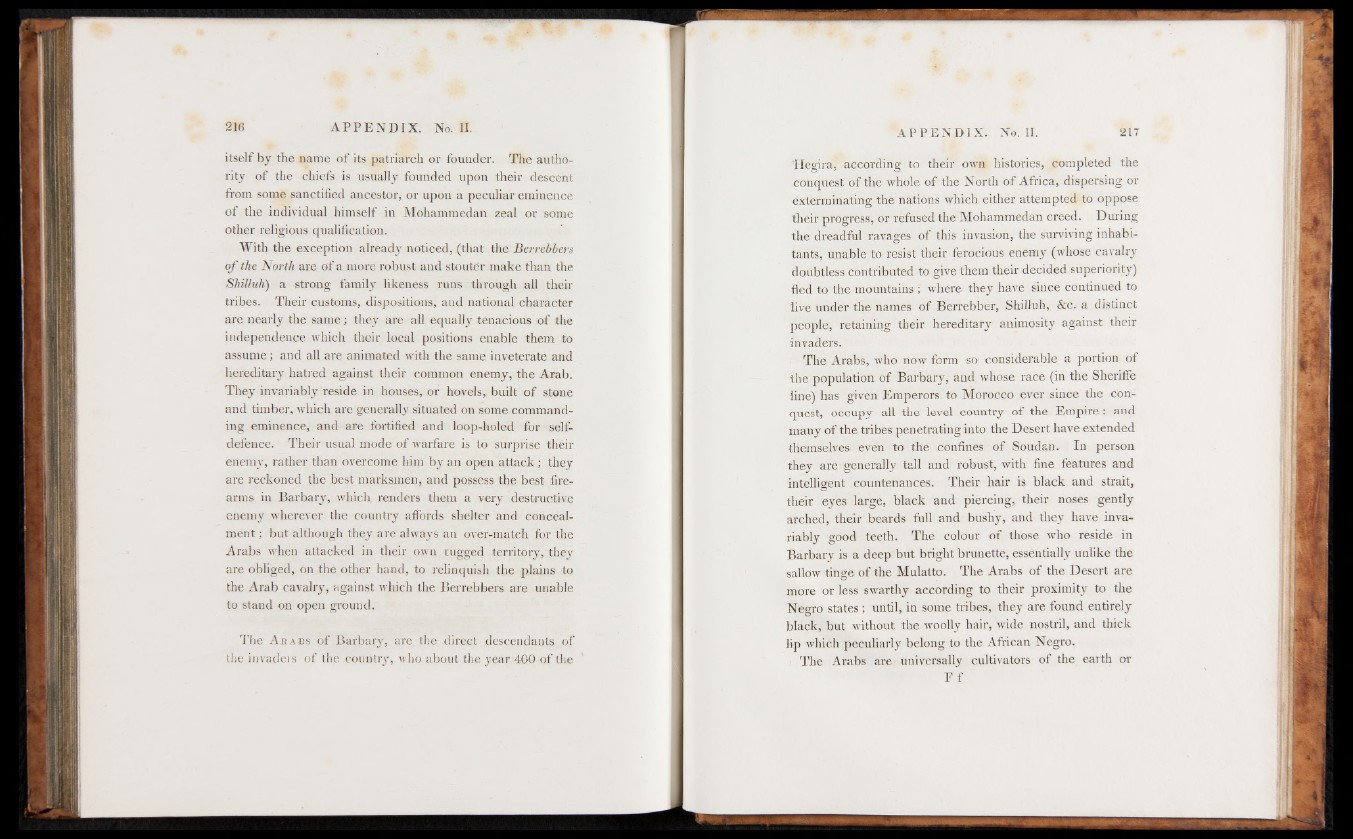
itself by the name of its patriarch or founder. The authority
of the chiefs is usually founded upon their descent
from some sanctified ancestor, or upon a peculiar eminence
of the individual himself in Mohammedan zeal or some
other religious qualification.
With the exception already noticed, (that the Berrebbers
of the North are of a more robust and stouter make than the
Shilluh) a strong family likeness runs through all their
tribes. Their customs, dispositions, and national character
are nearly the same; they are all equally tenacious of the
independence which their local positions enable them to
assume; and all are animated with the same inveterate and
hereditary hatred against their common enemy, the Arab.
They invariably reside in houses, or hovels, built of stone
and timber, which are generally situated on some commanding
eminence, and are fortified and loop-holed for self-
defence. Their usual mode of warfare is to surprise their
enemy, rather than overcome him by an open attack; they
are reckoned the best marksmen, and possess the best firearms
in Barbary, which renders them a very destructive
enemy wherever the country affords shelter and concealment
; but although they are always an over-match for the
Arabs when attacked in their own rugged territory, they
are obliged, on the other hand, to relinquish the plains to
the Arab cavalry, against which the Berrebbers are unable
to stand on open ground.
The A bacs of Barbary, are the direct descendants of
the invaders of the country, who about the year 400 of the
TIegira, -according to their own histories, completed the
conquest of the whole of the North of Africa, dispersing or
exterminating the nations which either attempted to oppose
their progress, or refused the Mohammedan creed. During
the dreadful ravages of this invasion, the surviving inhabitants,
unable to resist their ferocious enemy (whose cavalry
doubtless contributed to give them their decided superiority)
fled to the mountains; where they have since continued to
live under the names of Berrebber, Shilluh, &c. a distinct
people, retaining their hereditary animosity against their
invaders.
The Arabs, who now form so considerable a portion of
the population of Barbary, and whose race (in the Sheriffe
line) has given Emperors to Morocco ever since the conquest,
occupy all the level country of the Empire; and
many of the tribes penetrating into the Desert have extended
themselves even to the confines of Soudan. In person
they are generally tall and robust, with fine features and
intelligent countenances. Their hair is black and strait,
their eyes large, black and piercing, their noses gently
arched, their beards full and bushy, and they have invariably
good teeth. The colour of those who reside in
Barbary is a deep but bright brunette, essentially unlike the
sallow tinge of the Mulatto. The Arabs of the Desert are
more or less swarthy according to their proximity to the
Negro states ; until, in some tribes, they are found entirely
black, but without the woolly hair, wide nostril, and thick
lip which peculiarly belong to the African Negro.
The Arabs are universally cultivators of the earth or
F f